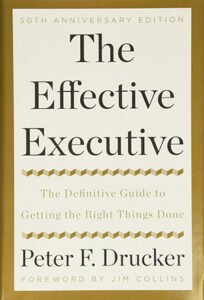|
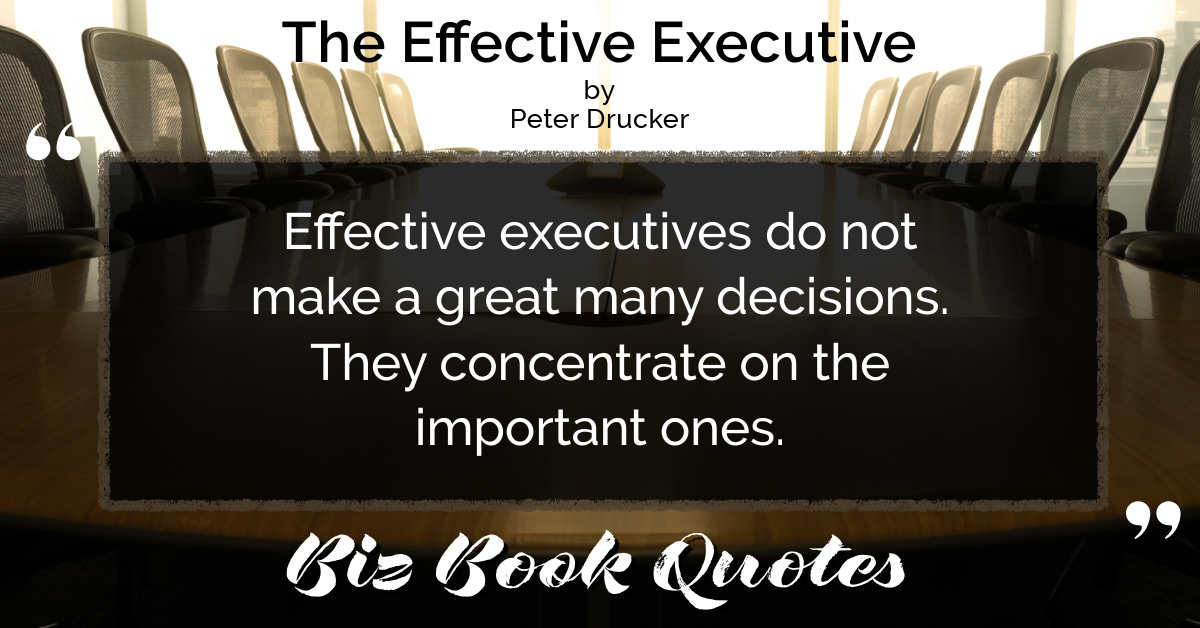
|
The Effective Executive:
Effective executives do not make a great many decisions. They concentrate on the important ones.
|
2277 |
|
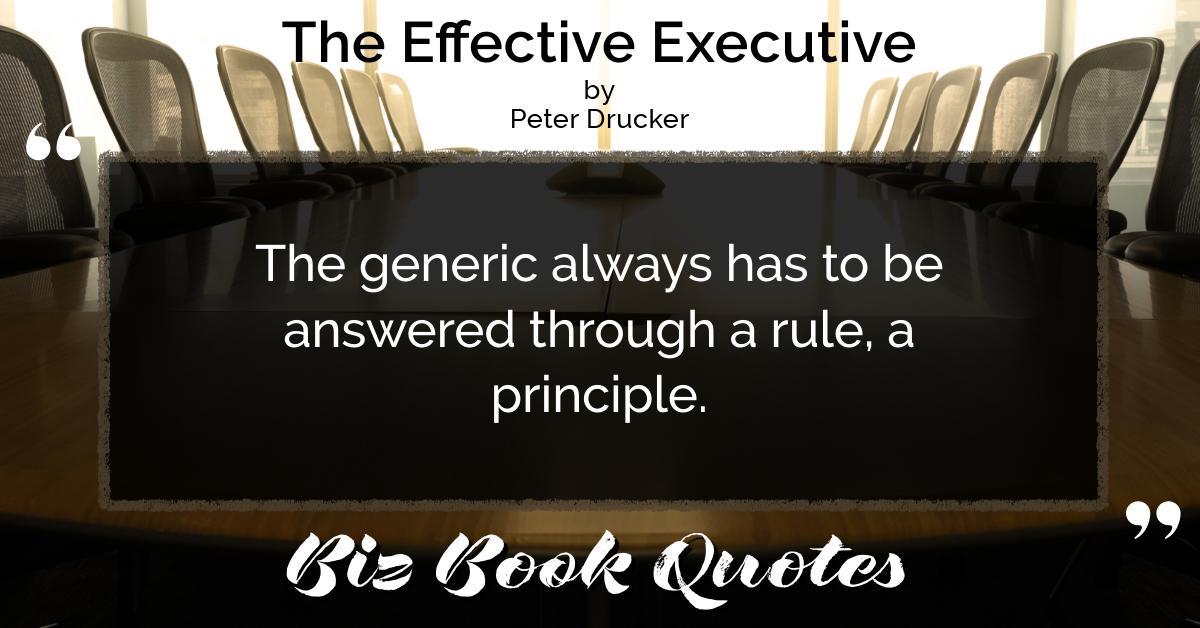
|
The Effective Executive:
The generic always has to be answered through a rule, a principle.
|
2425 |
|
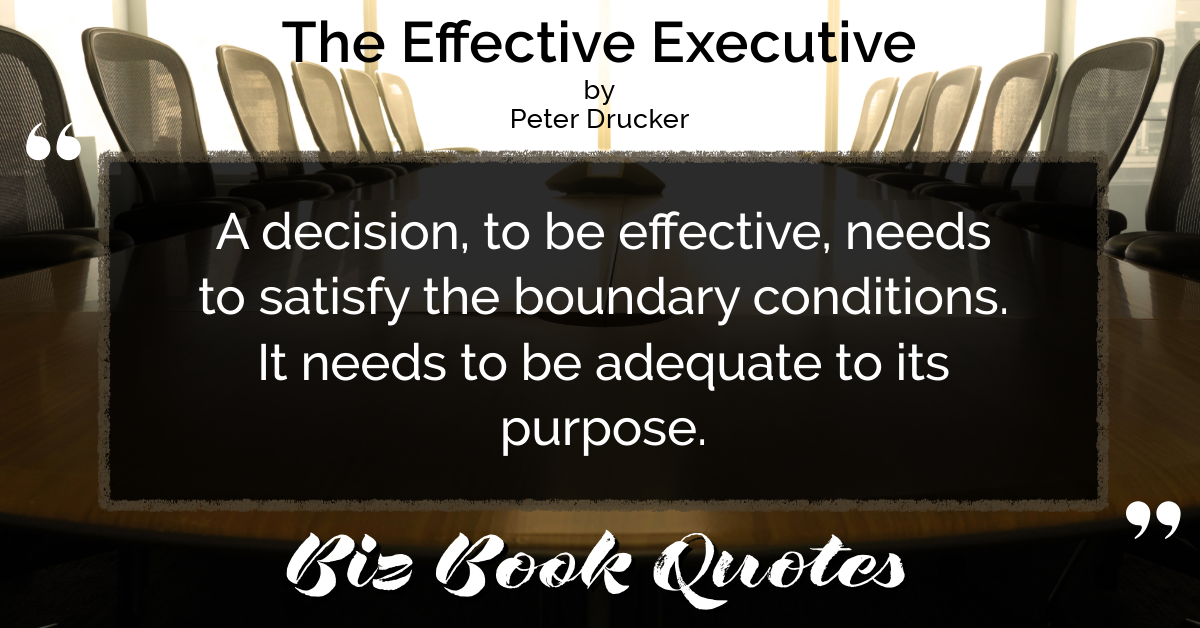
|
The Effective Executive:
A decision, to be effective, needs to satisfy the boundary conditions. It needs to be adequate to its purpose.
|
2541 |
|
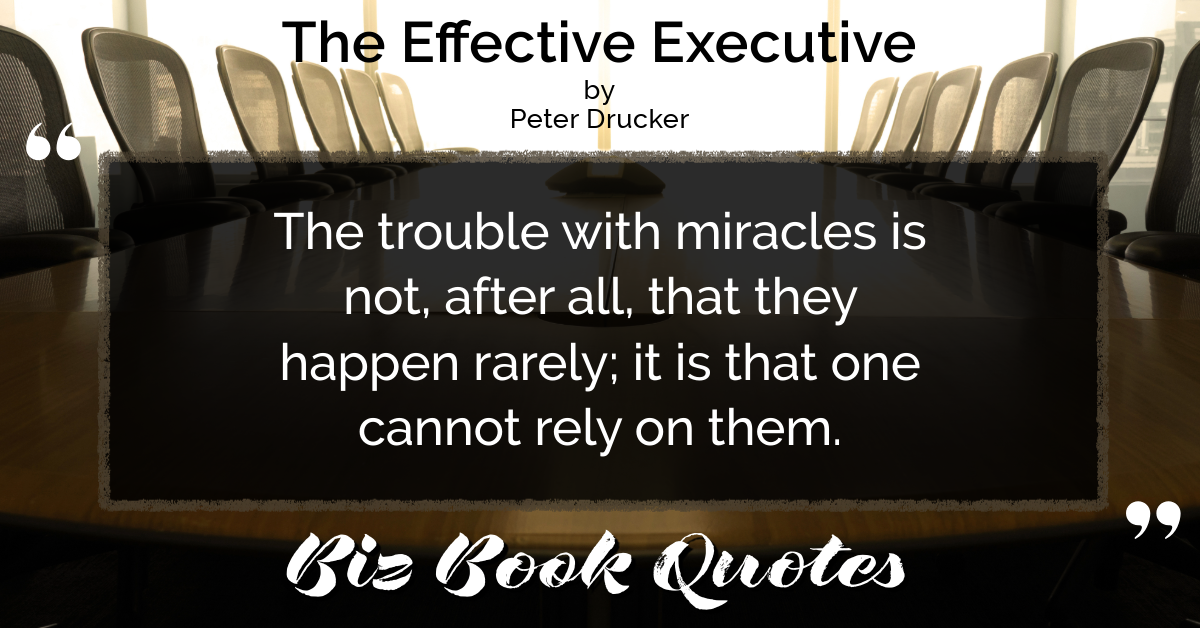
|
The Effective Executive:
The trouble with miracles is not, after all, that they happen rarely; it is that one cannot rely on them.
|
2594 |
|
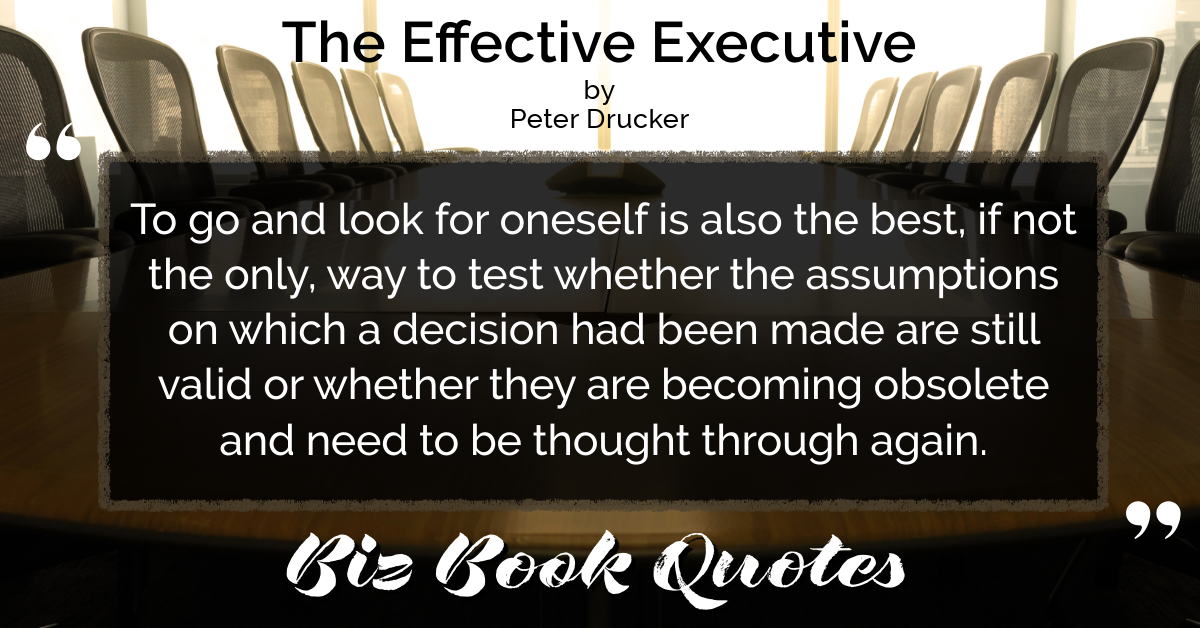
|
The Effective Executive:
To go and look for oneself is also the best, if not the only, way to test whether the assumptions on which a decision had been made are still valid or whether they are becoming obsolete and need to be thought through again.
|
2733 |
|
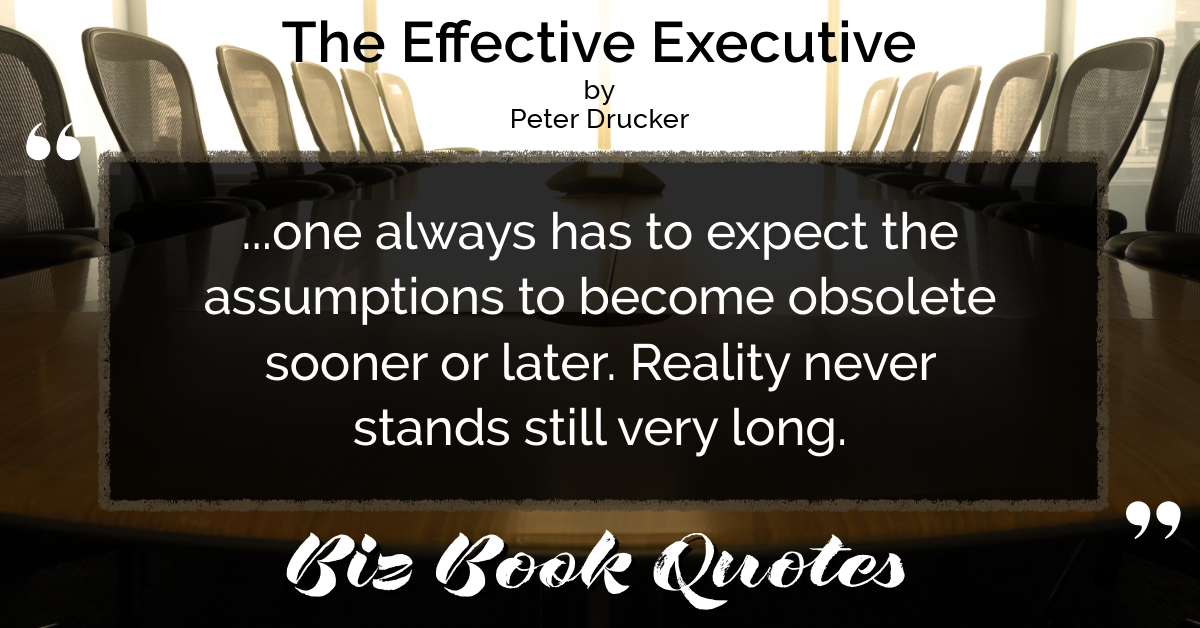
|
The Effective Executive:
…one always has to expect the assumptions to become obsolete sooner or later. Reality never stands still very long.
|
2735 |
|
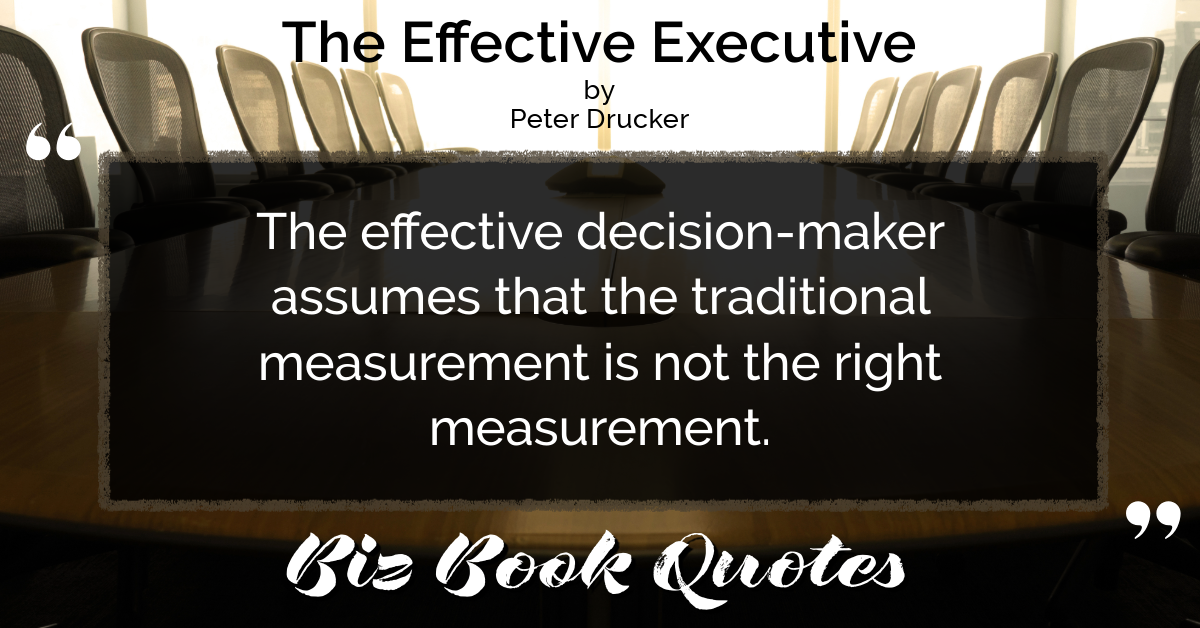
|
The Effective Executive:
The effective decision-maker assumes that the traditional measurement is not the right measurement.
|
2779 |
|
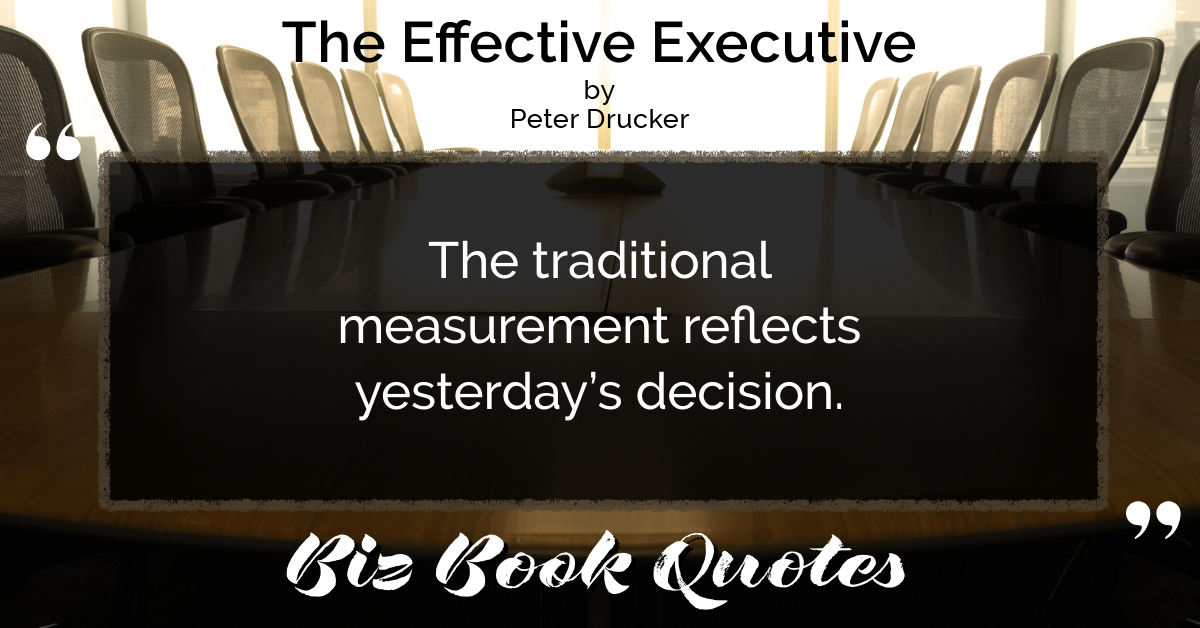
|
The Effective Executive:
The traditional measurement reflects yesterday’s decision.
|
2781 |
|
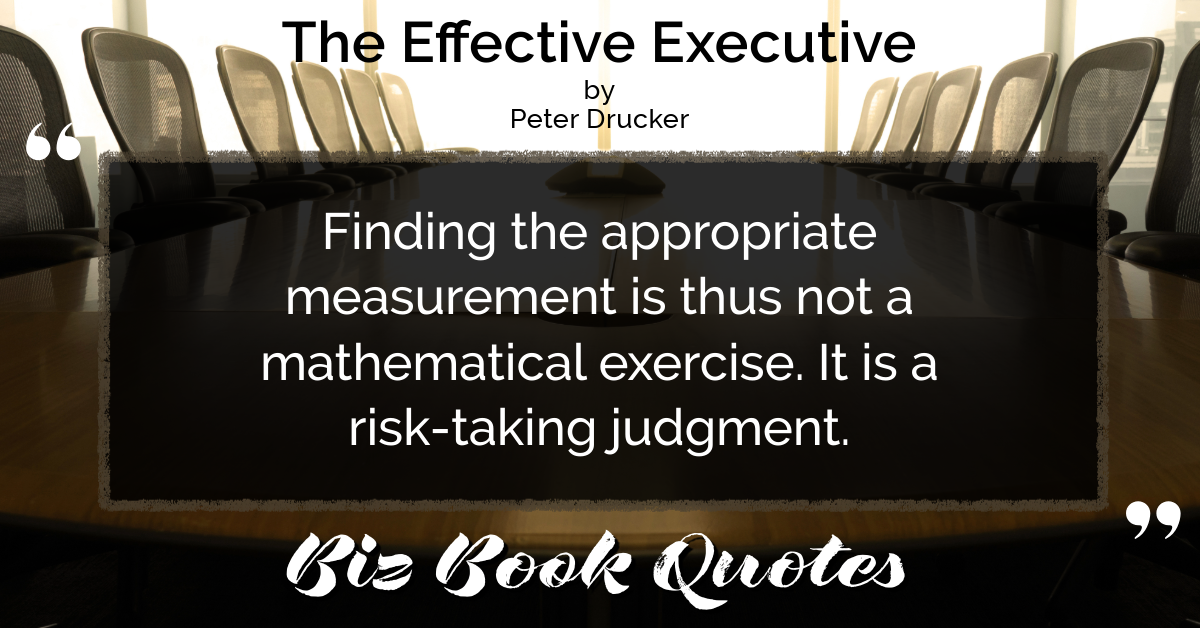
|
The Effective Executive:
Finding the appropriate measurement is thus not a mathematical exercise. It is a risk-taking judgment.
|
2807 |
|
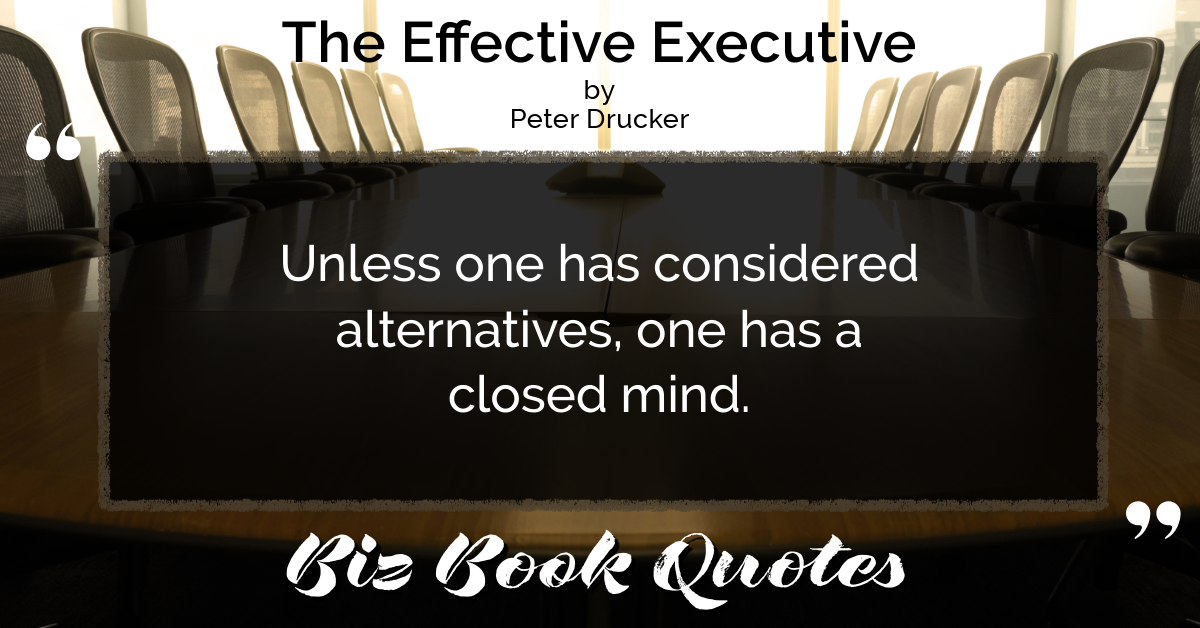
|
The Effective Executive:
Unless one has considered alternatives, one has a closed mind.
|
2820 |
